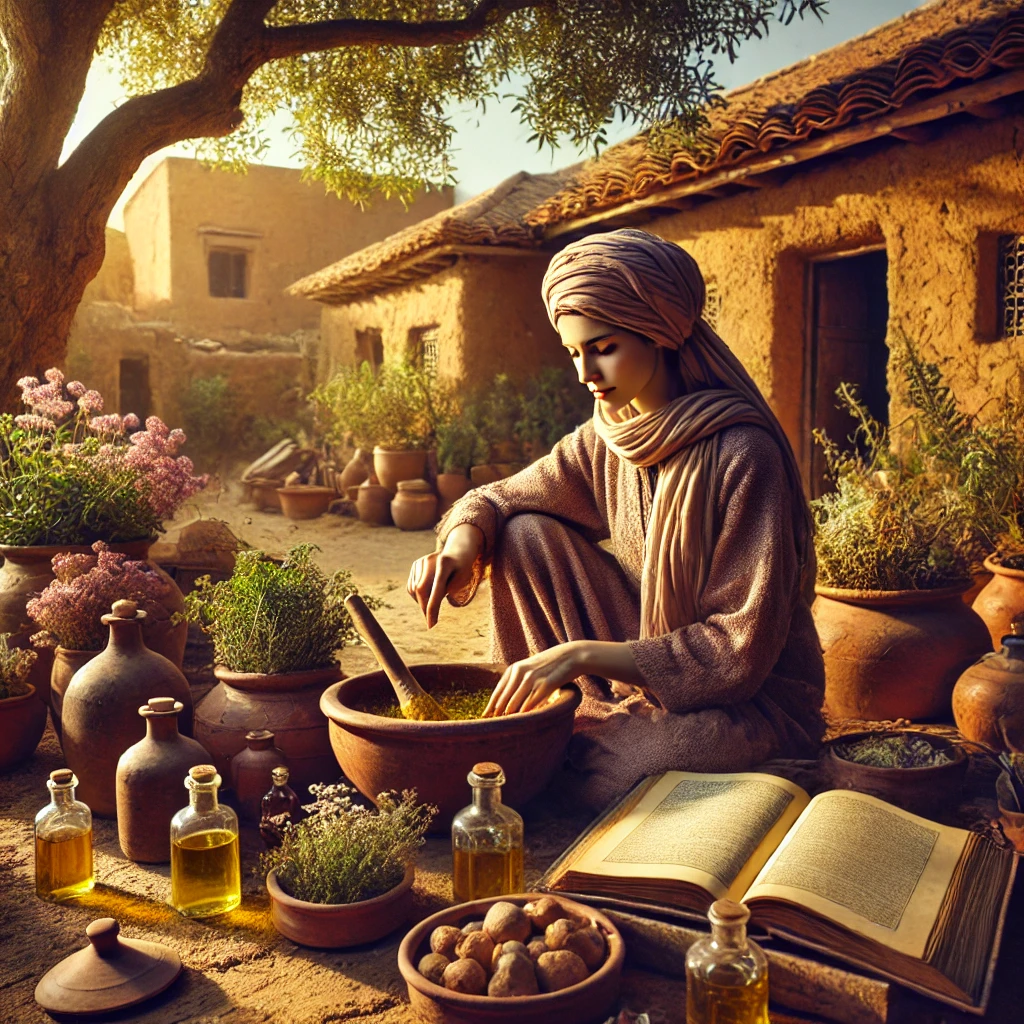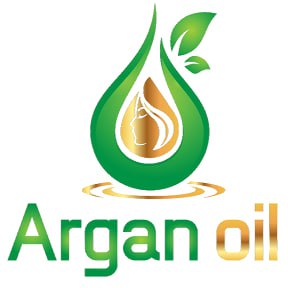Argan oil has been an integral part of Moroccan culture for centuries. Known as “liquid gold”, this precious oil is more than just a beauty elixir—it has long been revered for its medicinal properties in traditional Moroccan medicine. Extracted from the kernels of the argan tree (Argania spinosa), it has played a crucial role in healing wounds, soothing skin conditions, and promoting overall wellness.
A Brief History of Argan Oil in Moroccan Healing Traditions
For generations, Berber communities have utilized argan oil in traditional Moroccan medicine to treat various ailments. The oil’s unique composition—rich in vitamin E, antioxidants, and essential fatty acids—has made it a powerful remedy for both internal and external health.
According to Moroccan healers, argan oil has been used for:
- Skin healing: Treating burns, scars, and eczema
- Joint pain relief: Massaging sore muscles and reducing inflammation
- Hair and scalp nourishment: Preventing dandruff and dryness
- Digestive aid: Consumed in moderation for digestive benefits
Read more about the history of Argan oil on Argan-Oil.ma
Healing Properties of Argan Oil in Traditional Moroccan Remedies
1. Skin and Wound Healing
One of the primary uses of argan oil in traditional Moroccan medicine is in skin repair. The oil’s antioxidant and anti-inflammatory properties help reduce redness, irritation, and promote faster healing of wounds and scars.
- A few drops applied to minor cuts and burns can accelerate recovery.
- Rich in linoleic acid, it aids in cell regeneration and hydration.
- It is still used in Moroccan households as a natural treatment for eczema and psoriasis.
2. Arthritis and Joint Pain Relief
Berber communities traditionally massage warm argan oil onto aching joints to relieve pain and inflammation. The oil’s high concentration of omega-6 fatty acids and polyphenols makes it a natural anti-inflammatory remedy.
Studies suggest that argan oil may aid in reducing symptoms of rheumatoid arthritis by improving flexibility and reducing stiffness. Pairing it with Moroccan black soap treatments enhances its therapeutic effects.
3. Hair and Scalp Care
Argan oil is a traditional Moroccan remedy for hair health, preventing scalp dryness and stimulating hair growth. Women have used it for centuries to maintain silky, nourished hair in the harsh desert climate.
- Dandruff and itchy scalp relief: Massaging a few drops into the scalp helps soothe irritation.
- Protects against sun damage: The oil forms a natural barrier against UV rays.
Check out hair care tips with Argan oil on Argan-Oil.ma
4. Digestive and Heart Health Benefits
While argan oil is mostly associated with cosmetic use, its culinary variant is consumed in traditional Moroccan medicine for digestive health. When used in moderation, it can help:
- Regulate cholesterol levels
- Improve digestion
- Reduce inflammation in the gut
Find Moroccan recipes using Argan oil on Group-Oriental.ma
Modern Science Meets Traditional Knowledge
Scientific research has confirmed many of the healing properties of argan oil in traditional Moroccan medicine. Modern dermatologists and nutritionists continue to explore its potential, reinforcing what Moroccan healers have known for centuries.
Today, authentic organic argan oil is sought after worldwide for its therapeutic and cosmetic benefits. However, it is essential to source high-quality, cold-pressed oil to reap its full advantages.
Find 100% pure argan oil products on Argan-Oil.ma
Conclusion: The Legacy of Argan Oil in Moroccan Medicine
The use of argan oil in traditional Moroccan medicine is a testament to its timeless value. From wound healing to hair nourishment, it remains a staple in Moroccan households and continues to gain global recognition. Whether used in skincare, haircare, or consumed for wellness, its ancient secrets still hold the key to natural healing.
For those looking to experience the benefits of authentic Moroccan argan oil, always choose pure, ethically sourced products.


